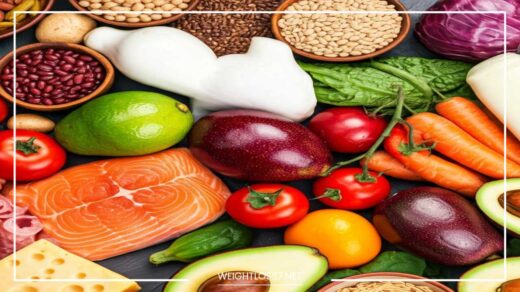Natural Vitamin Sources for Optimal Health

Vitamin Sources
Nature’s Medicine: Supercharge Your Health with Natural Vitamins
Vitamins are essential micronutrients that play a crucial role in various bodily functions. They are required in small quantities but have a significant impact on overall health.
While vitamin supplements are readily available, obtaining vitamins from natural sources through a well-balanced diet is often the preferred and more sustainable option.
In this essay, we will explore the importance of natural vitamin sources and delve into specific sources for various vitamins, offering insights into how these nutrients contribute to our well-being.
The Importance of Natural Vitamin Sources
- Nutrient Synergy: Natural vitamin sources often come packaged with other essential nutrients, such as minerals, fiber, and antioxidants. These complementary compounds enhance the bioavailability and effectiveness of the vitamins themselves. For example, vitamin C in citrus fruits is not only an antioxidant but also aids in iron absorption.
- Reduced Risk of Overconsumption: When you obtain vitamins from natural sources, it is less likely that you will exceed recommended daily intake levels. In contrast, excessive vitamin intake through supplements can have adverse effects on health.
- Long-Term Health Benefits: Regular consumption of natural vitamin sources is associated with long-term health benefits, including reduced risk of chronic diseases such as heart disease, cancer, and diabetes. This is due to the holistic nutritional profile of whole foods.
Understanding the Different Types of Vitamins
Before delving into specific natural sources, it is essential to understand the different types of vitamins and their roles in the body.
- Fat-Soluble Vitamins
- Vitamin A: Promotes vision, skin health, and immune function. Found in liver, sweet potatoes, carrots, and leafy greens.
- Vitamin D: Essential for bone health and calcium absorption. Sunlight is a natural source, and it’s also present in fatty fish like salmon and fortified dairy products.
- Vitamin E: Acts as an antioxidant and supports skin health. Nuts, seeds, and vegetable oils are excellent sources.
- Vitamin K: Vital for blood clotting and bone health. Leafy greens like spinach and kale are rich in vitamin K.
- Water-Soluble Vitamins
- Vitamin B Complex: This group of vitamins includes B1 (thiamine), B2 (riboflavin), B3 (niacin), B4 (choline), B5 (pantothenic acid), B6 (pyridoxine), B7 (biotin), B8 (inositol), B9 (folate), and B12 (cobalamin). They play various roles in energy metabolism, nerve function, and DNA synthesis. Each has its natural sources, as mentioned in the introduction.
- Vitamin C: Known for its immune-boosting properties and role in collagen production. Abundant in citrus fruits, but also found in strawberries, bell peppers, and broccoli.
Now, let’s explore the natural sources of these vitamins in greater detail.
Natural Sources of Fat-Soluble Vitamins
- Vitamin A Sources
- Liver: Beef liver and chicken liver are rich sources of vitamin A.
- Sweet Potatoes: These colorful tubers are packed with beta-carotene, a precursor to vitamin A.
- Carrots: Known for their beta-carotene content, carrots are excellent for eye health.
- Leafy Greens: Spinach, kale, and collard greens contain vitamin A in the form of carotenoids.
- Vitamin D Sources
- Sunlight: The most natural source of vitamin D. Spending time outdoors allows your skin to synthesize this vitamin.
- Fatty Fish: Salmon, mackerel, and trout are high in vitamin D.
- Fortified Foods: Many dairy products, cereals, and plant-based milk alternatives are fortified with vitamin D.
- Vitamin E Sources
- Nuts and Seeds: Almonds, sunflower seeds, and hazelnuts are rich in vitamin E.
- Vegetable Oils: Olive oil, sunflower oil, and safflower oil are good sources.
- Leafy Greens: Spinach and Swiss chard contain vitamin E, albeit in smaller amounts.
- Vitamin K Sources
- Leafy Greens: Kale, spinach, and collard greens are top sources of vitamin K.
- Broccoli: This cruciferous vegetable is rich in vitamin K1.
- Liver: Like vitamin A, liver is a good source of vitamin K.
Natural Sources of Water-Soluble Vitamins
- Vitamin B1 (Thiamine) Sources
- Brewer’s Yeast: A nutritional powerhouse often used as a supplement.
- Whole Grains: Brown rice, oats, and whole wheat bread are rich in thiamine.
- Blackstrap Molasses: A sweetener with high thiamine content.
- Vitamin B2 (Riboflavin) Sources
- Brewer’s Yeast: A versatile source of B vitamins.
- Whole Grains: Whole wheat products and enriched cereals are good sources.
- Legumes: Beans and lentils contain riboflavin.
- Vitamin B3 (Niacin) Sources
- Lean Meats: Chicken and turkey are niacin-rich.
- Poultry and Fish: Salmon, tuna, and trout are excellent sources.
- Peanuts: A tasty snack that provides niacin.
- Milk: Dairy products contribute to your niacin intake.
- Vitamin B4 (Choline) Sources
- Egg Yolks: Choline is found in abundance in egg yolks.
- Organ Meats: Liver and kidneys are good sources.
- Wheat Germ: An excellent addition to cereals and baked goods.
- Vitamin B5 (Pantothenic Acid) Sources
- Organ Meats: Liver and kidney contain pantothenic acid.
- Legumes: Lentils and chickpeas provide this vitamin.
- Whole Grains: Brown rice and whole wheat bread are good sources.
- Vitamin B6 (Pyridoxine) Sources
- Meats: Chicken, turkey, and lean beef are high in vitamin B6.
- Whole Grains: Whole wheat products and brown rice are sources.
- Brewer’s Yeast: A versatile supplement rich in B vitamins.
- Vitamin B7 (Biotin) Sources
- Egg Yolks: Biotin is found in eggs.
- Liver: Another source of biotin.
- Unpolished Rice: Brown rice contains this vitamin.
- Legumes: Lentils and soybeans provide biotin.
- Vitamin B8 (Inositol) Sources
- Whole Grains: Inositol can be found in whole wheat products.
- Citrus Fruits: Some citrus fruits contain inositol.
- Molasses: Blackstrap molasses is a source of inositol.
- Vitamin B9 (Folate) Sources
- Dark-Green Leafy Vegetables: Spinach, kale, and collard greens are folate-rich.
- Organ Meats: Liver is a particularly potent source of folate.
- Root Vegetables: Beets and turnips contain folate.
- Oysters: Shellfish are a seafood source of folate.
- Salmon: Fatty fish like salmon provide folate.
- Milk: Dairy products contribute to your folate intake.
- Vitamin B12 (Cobalamin) Sources
- Organ Meats: Liver and kidneys are rich in vitamin B12.
- Fish: Salmon, tuna, and trout contain B12.
- Pork: Lean pork is a source of this vitamin.
- Eggs: B12 is present in egg yolks.
- Cheese: Certain types of cheese, like Swiss and mozzarella, contain B12.
- Milk: Dairy products are good sources of B12.
- Lamb: Lamb meat provides this vitamin.
- Bananas: A fruit source of B12.
- Kelp: A seaweed source of B12.
- Peanuts: Nuts contribute to your B12 intake.
- Vitamin B13 (Orotic Acid) Sources
- Root Vegetables: Some root vegetables contain orotic acid.
- Liquid Whey: Whey, a byproduct of cheese-making, contains B13.
- Vitamin B15 (Pangamic Acid) Sources
- Brewer’s Yeast: A comprehensive source of B vitamins, including B15.
- Rare Steaks: Certain cuts of red meat contain pangamic acid.
- Brown Rice: A staple food that provides B15.
- Seeds: Sunflower, pumpkin, and sesame seeds contain B15.
- Vitamin B17 (Amygdalin) Sources
- Whole Kernels of Fruits: The kernels of apricots, apples, cherries, peaches, and plums contain amygdalin.
- Vitamin C Sources
- Citrus Fruits: Oranges, lemons, and grapefruits are renowned for their vitamin C content.
- Cabbage Family Vegetables: Broccoli, Brussels sprouts, and cabbage are rich sources.
- Chili Peppers: These spicy peppers pack a vitamin C punch.
- Berries: Strawberries, blueberries, and raspberries are full of vitamin C.
- Melons: Watermelon and cantaloupe are refreshing sources.
- Asparagus: A nutrient-dense vegetable with vitamin C.
- Rose Hips: These are the fruit of wild roses and provide vitamin C.
Concluding Thoughts
Incorporating natural vitamin sources into your diet is a practical and health-conscious approach to meeting your daily nutritional requirements.
The diversity of vitamins and their sources offers a wide array of options for individuals with different dietary preferences and restrictions.
Moreover, obtaining vitamins from natural sources not only supports your physical health but also provides a more holistic and sustainable approach to nutrition.
To maintain optimal health, it is crucial to understand the importance of vitamins and make informed choices about the foods you consume.
By doing so, you can ensure that your body receives the essential vitamins it needs to thrive and lead a healthy, vibrant life.

















